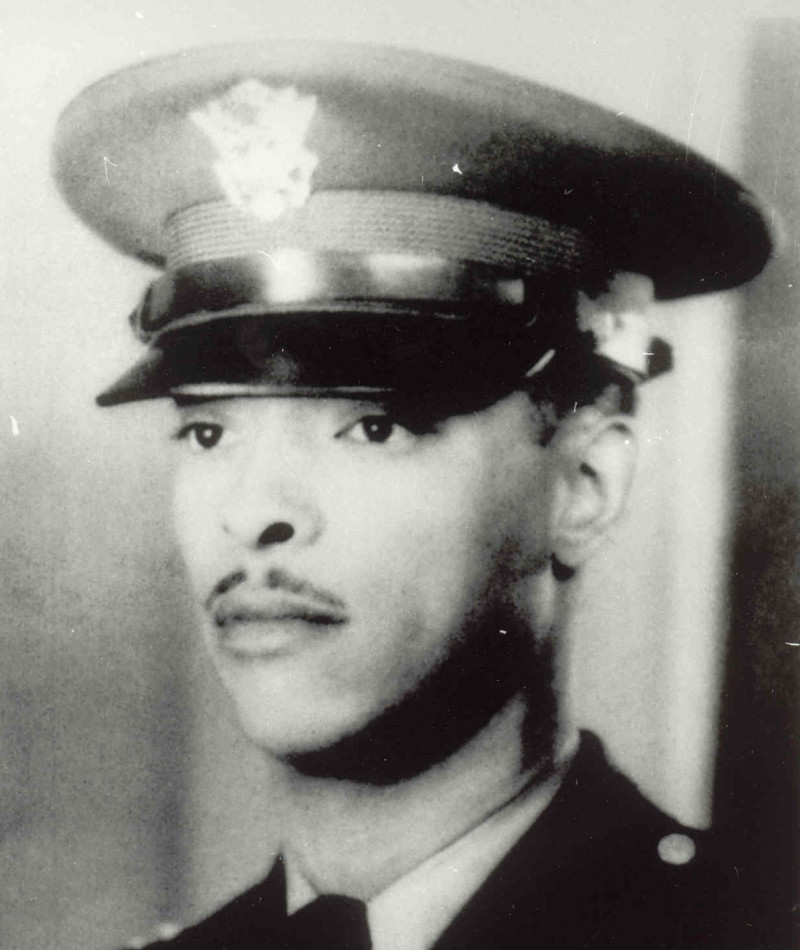 John Robert Fox received the Medal of Honor for his actions on December 26, 1944. Fox was a 29 year old first lieutenant and a forward artillery observer. He was stationed, along with eight Italian partisans, in the small Italian mountain town of Sommocolonia, when it was overrun by German soldiers. Calling in artillery as the enemy drew closer, he finally called in a strike directly on his position, despite the risk to his own life. The resulting barrage killed Fox and the partisans, along with about 100 Germans. His citation is below.
John Robert Fox received the Medal of Honor for his actions on December 26, 1944. Fox was a 29 year old first lieutenant and a forward artillery observer. He was stationed, along with eight Italian partisans, in the small Italian mountain town of Sommocolonia, when it was overrun by German soldiers. Calling in artillery as the enemy drew closer, he finally called in a strike directly on his position, despite the risk to his own life. The resulting barrage killed Fox and the partisans, along with about 100 Germans. His citation is below.
Negro soldiers, as they were called then, were denied Medal of Honor consideration during World War Two. It was only in the 1990s that an Army review commission recommended several soldiers for our country's highest honor. In 1997 President Clinton presented the Medal of Honor to seven recipients. For six, including Fox, the award was posthumous and presented to family members.
For conspicuous gallantry and intrepidity at the risk of his life above and beyond the call of duty: First Lieutenant John R. Fox distinguished himself by extraordinary heroism at the risk of his own life on 26 December 1944 in the Serchio River Valley Sector, in the vicinity of Sommocolonia, Italy. Lieutenant Fox was a member of Cannon Company, 366th Infantry, 92d Infantry Division, acting as a forward observer, while attached to the 598th Field Artillery Battalion. Christmas Day in the Serchio Valley was spent in positionswhich had been occupied for some weeks. During Christmas night, there was a gradual influx of enemy soldiers in civilian clothes and by early morning the town was largely in enemy hands. An organized attack by uniformed German formations was launched around 0400 hours, 26 December 1944. Reports were received that the area was being heavily shelled by everything the Germans had, and although most of the U.S. infantry forces withdrew from the town, Lieutenant Fox and members of his observer party remained behind on the second floor of a house, directing defensive fires. Lieutenant Fox reported at 0800 hours that the Germans were in the streets and attacking in strength. He called for artillery fire increasingly close to his own position. He told his battalion commander, "That was just where I wanted it. Bring it in 60 yards!" His commander protested that there was a heavy barrage in the area and the bombardment would be too close. Lieutenant Fox gave his adjustment, requesting that the barrage be fired. The distance was cut in half. The Germans continued to press forward in large numbers, surrounding the position. Lieutenant Fox again called for artillery fire with the commander protesting again, stating, "Fox, that will be on you!" The last communication from Lieutenant Fox was, "Fire It! There's more of them than there are of us. Give them hell!" The bodies of Lieutenant Fox and his party were found in the vicinity of his position when his position was taken. This action, by Lieutenant Fox, at the cost of his own life, inflicted heavy casualties, causing the deaths of approxamately 100 German soldiers, thereby delaying the advance of the enemy until infantry and artillery units could by reorganized to meet the attack. Lieutenant Fox's extraordinarily valorous actions exemplify the highest traditions of the military service.
No comments:
Post a Comment